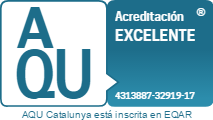Migration and Diasporas in Literatures and Cultures in English
Summary
This course addresses the diasporic nature of the contemporary world, with a view to the understanding the construction of new personal, communal, and national and transnational identities in the meeting of cultures: their benefits and drawbacks, its opportunities, and limitations. For this, several post/colonial impact areas will be studied through representative narratives in English chosen to reflect on how population flows have changed our societies, identities, and sense of belonging, not only in the former colony but also in the western metropolis.
What Do We Study
This course examines the cultural production from a selection of regions belonging to the anglophone postcolonial world and their diasporas. Its focus is on essays, novels, poems and short stories that unmask the present global coloniality and imagine alternative futures to undo colonial modes of inhabiting the world.
Which is the Line of Thought
This subject draws attention to the intersectionality of colonial, racial and gender relations and privileges postcolonial, decolonial and feminist theories.
Theoretical and Practical Approaches
- Brand, Dionne. A Map to the Door of No Return. Vintage Canada, 2002.
- Danticat, Edwidge. Create Dangerously: The Immigrant Artist at Work. Princeton UP, 2010.
- Espinosa Miñoso, Yuderky. De por qué es necesario un feminismo descolonial. Icària, 2022.
- Ferdinand, Malcom. Decolonial Ecology: Thinking from the Caribbean World. Polity Press, 2022.
- Gilroy, Paul. The Black Atlantic: Modernity and Double Consciousness. Verso, 1993.
- Sheller, Mimi. Island Futures: Caribbean Survival in the Anthropocene. Duke UP, 2022.
- Stierstorfer, Klaus and Janet Wilson, eds. The Routledge Diaspora Studies Reader. Routledge, 2018.
